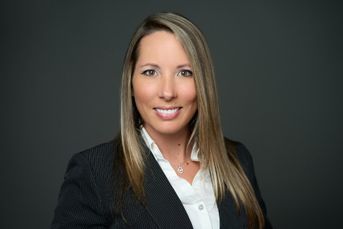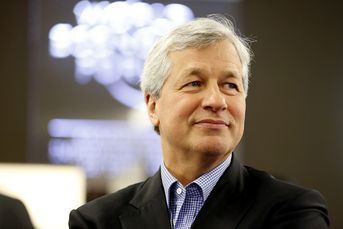The challenge of standing in a giant’s shadow

Which elements of a firm’s culture and principles that drove growth and which its visionary leader stood for and encouraged should be retained?
The recent passing of Edward C. Johnson III, the self-effacing leader who drove the stratospheric growth of Fidelity Investments, will bring change to one of the world’s largest financial firms. To be sure, with his daughter Abigail leading the company since 2014 and with Johnson, widely known as Ned, having had a far less involved role in Fidelity’s affairs for many years, any changes are likely to be imperceptible at first. But in so many cases at investment and securities firms in the past, the passing of a visionary leader — no matter how well-managed the enterprise — has posed unique challenges.
Essentially, those challenges come down to issues of tradition and change. Which elements of a firm’s culture and principles that drove growth and which its visionary leader stood for and encouraged should be retained? Which must be adapted or replaced to meet new circumstances?
In family-controlled businesses such as Fidelity, that challenge is probably less of an issue than at firms with a different ownership structure. At Vanguard, for example, a long-time Fidelity rival that was led by a visionary of comparable stature, the tension between tradition and change has been more apparent.
LEGACY OF LEADERSHIP
Under the leadership of John Bogle, who created a unique structure in which the company’s mutual fund shareholders also owned the fund manager, Vanguard’s investment philosophy was based on the then-novel idea that matching the market, if done cheaply, is better than trying to beat it. Over time, a die-hard kernel of fans, who came to be known as Bogleheads, grew into acres of investors whose $8 trillion in assets make Vanguard the nation’s second-largest manager after BlackRock.
Leaders at Vanguard and Fidelity probably will be asking themselves what Jack and Ned would do.
Lately, the organization and many of its vociferous Bogleheads have been wondering what the firm’s former leader would have done in the face of the changing world Vanguard now finds itself in. For example, having already captured such a huge share of investor assets that growth in that area is slowing, Vanguard decided to manage those assets for investors — of course, in its traditional, low-cost way. Since 2015, according to recent reporting by Bloomberg, those managed assets have grown to $275 billion.
SHIFT TO TECH
Another change has come in technology. To keep pace with customer demands and to avert embarrassing service glitches, the company is spending billions more on technology and spending it more quickly, which is a marked shift from its go-it-slow approach of earlier years. And in a significant departure from its tradition of in-house development, Vanguard bought direct-indexer Just Invest last year, its first-ever acquisition.
Current Vanguard leadership may privately chafe about gripes from Bogleheads, but their existence is evidence of the ongoing presence and influence of the Vanguard corporate culture. At other firms created and dominated by strong leaders for many years, such as Merrill Lynch and J.P. Morgan, time and changes in corporate ownership have all but erased the practical impact of the original culture.
It’s doubtful, for example, that anyone in the executive halls of Bank of America wonders what Charlie Merrill would do in their shoes. Leaders at Vanguard and Fidelity, on the other hand, probably will be asking themselves what Jack and Ned would do for a while to come.
Learn more about reprints and licensing for this article.







